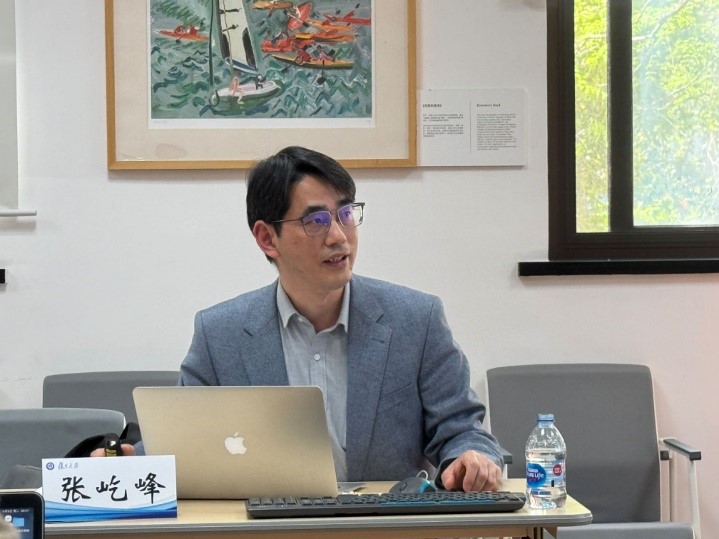On the morning of April 9, 2024, at 9 o'clock, Zhang Yifeng, Associate Researcher of Fudan Institute of Belt and Road& Global Governance, delivered a fascinating lecture in Room 209 of the Think Tank Building. The lecture was titled "The Transformation of the Eurasian Regional Order in the Context of the Russia-Ukraine War". Professor Ding Chun, Vice Dean of Fudan Institute of Belt and Road& Global Governance, chaired the lecture.
Zhang Yifeng discussed the shift in the Eurasian region under the backdrop of the Russia-Ukraine war from four main perspectives. This included reviewing the evolution of the Eurasian regional order since the end of the Cold War, analyzing the impact of the Russia-Ukraine war on governance in the Eurasian region, elucidating his own understanding and reflections on the transformation of the Eurasian regional order, and exploring China's strategic choices regarding the transformation of the Eurasian regional order.

Zhang Yifeng believes that the geopolitical and geo-economic transformation of the Eurasian region is a long-term process filled with uncertainty, and the development direction remains unclear at present. In the short term, the Russia-Ukraine war and the results of the US presidential election may directly impact the order in this region, but whether it will develop in the direction we hope for still needs observation. Against this backdrop, China's strategic choices need to consider both geopolitical factors, such as avoiding direct involvement in great power competition, and international political and moral demands. At the same time, it is necessary to closely concern the multi-party competition involving Russia, the United States, and Europe, and seek the best balance point to safeguard China's own interests and influence.
After the lecture, Professor Huang Renwei, Executive Vice Dean of Fudan Institute of Belt and Road& Global Governance, delivered insightful remarks. Participants engaged in further academic exchanges on this research topic.






